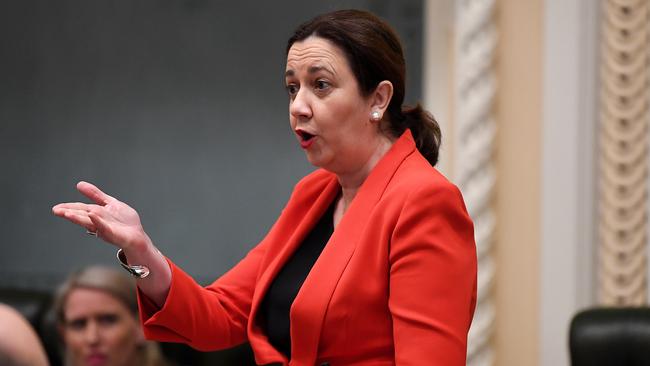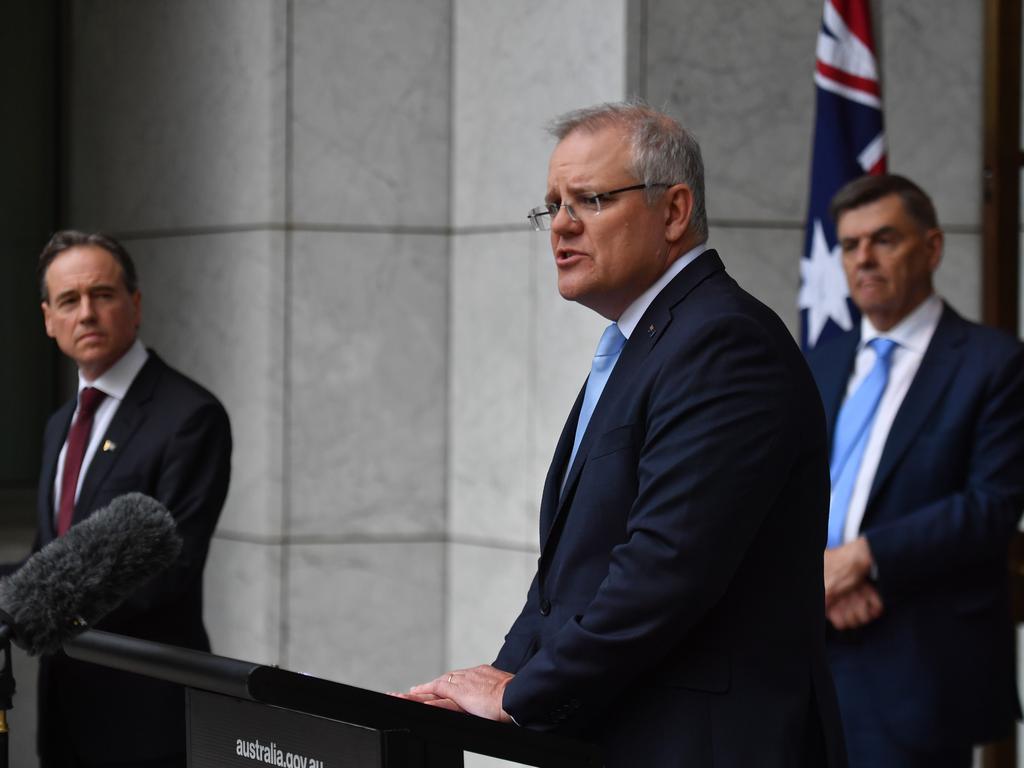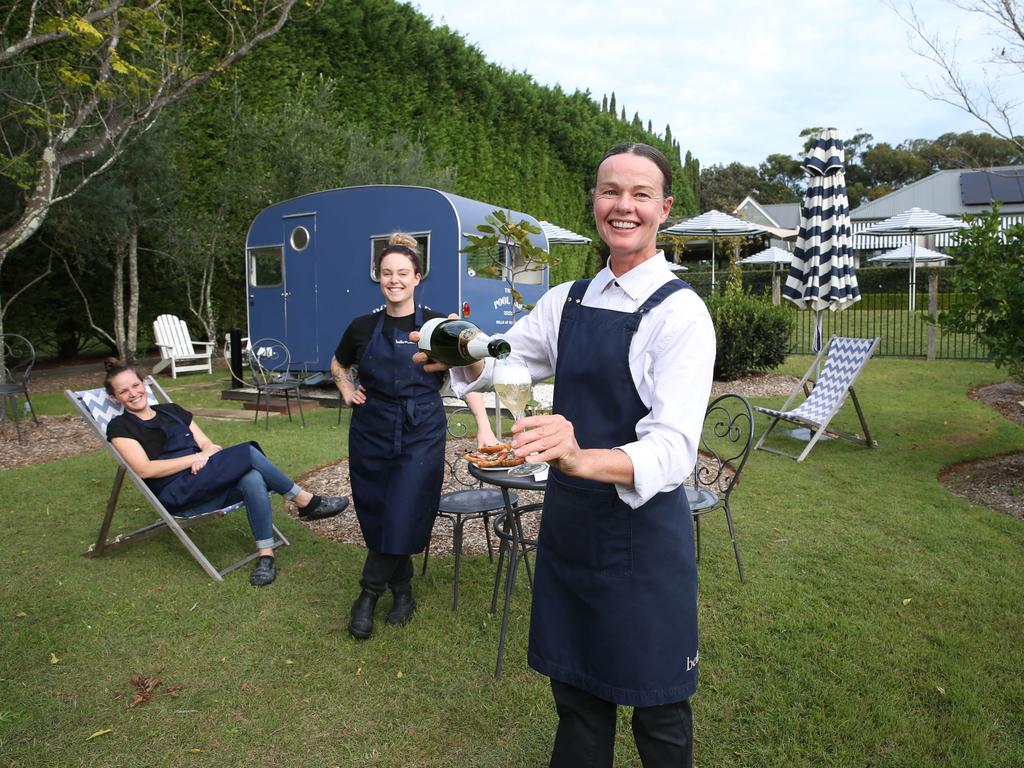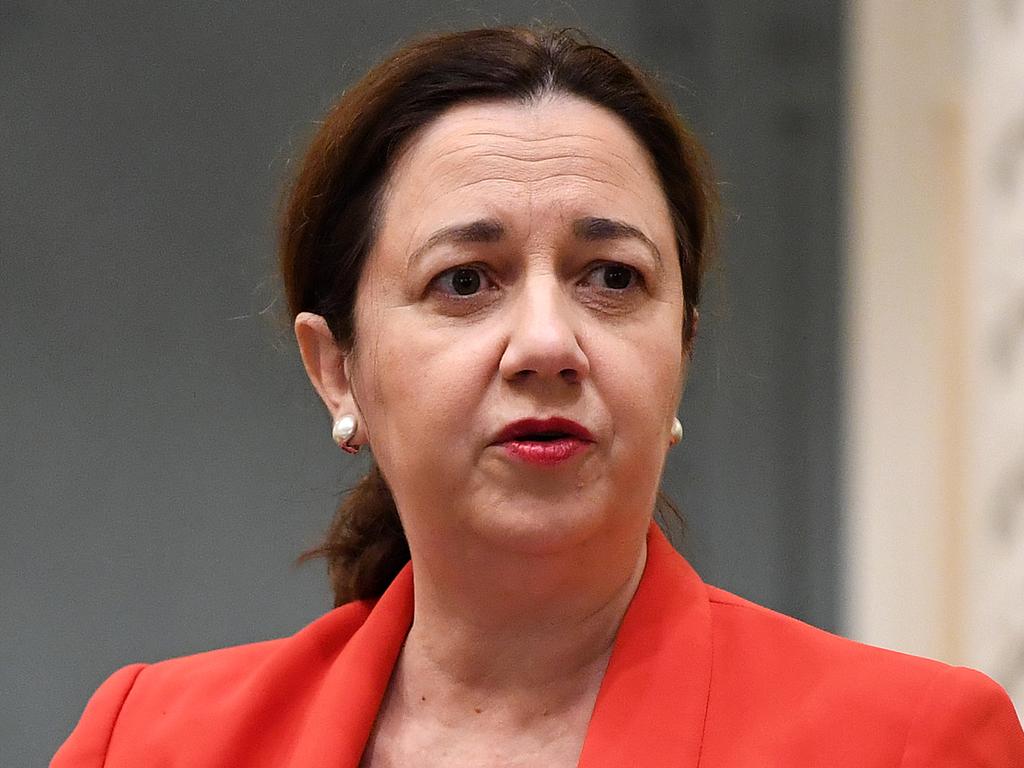Smaller states defy medical advice on reopening their borders
Australia’s two most populous states are set to remain effectively isolated from the rest of the country for months.

Australia’s two most populous states are set to remain effectively isolated from the rest of the country for months as premiers from the smaller states insist they will not be bullied into relaxing border closures, despite advice from medical experts and federal officials that interstate travel poses no health risks.
The standoff over the future of state and territory border closures has widened a rift between Australia’s federal health officers, who say there is no medical reason to continue the border shutdown, and their state counterparts, who fear the virus spreading from the nation’s two largest states.
It has also escalated bickering between state and territory leaders as tensions increase between beating COVID-19’s threat to Australian lives and minimising the devastating impact on livelihoods.
There are mounting fears that some parts of Australia’s tourism industry — already suffering deep job cuts and plunging revenue — will not survive a long period of interstate travel bans.
However, Queensland Premier Annastacia Palaszczuk remained unmoved, saying the closure of her state’s borders would continue because she always put Queenslanders’ lives first.
She was backed up by Queensland Chief Health Officer Jeannette Young, who said she could give no guarantee the border would reopen by September.
The “best-case scenario” for reopening the border with NSW and Victoria “would be four weeks of zero cases of community transmission in those states,” she said.
However, Australia’s Deputy Chief Medical Officer, Paul Kelly, said there was no medical reason for the shutdown to continue. “From a medical point of view, I can’t see why the borders are still closed but, as I said, that’s for the states and territories themselves to decide when that time is right for them,” he said.
Ms Palaszczuk said she “cannot predict the future” so was unable say when the border would reopen.
Under questioning from the opposition in state parliament, she said Queensland had just 12 active coronavirus cases while NSW had 369 active cases and Victoria had 100.
“I make no excuses for shutting our border to protect the lives of Queenslanders,” she said.
The Cairns Chamber of Commerce on Wednesday pleaded with Ms Palaszczuk to “show lenience” on interstate travel, saying many businesses in the tropical tourism hub would not survive a prolonged period without interstate tourist activity. “With the borders being closed until September (or beyond), Cairns will miss its most valuable tourist season which will be the final straw that breaks many of our smaller tourism operators,” the chamber’s vice-president, Matthew Tickner, said.
Dr Kelly noted that it “may be some time” before Australia achieves four weeks without any new cases — Queensland’s criteria for reopening borders — “so I hope that Queensland will take that into account”.
He said as the economy opened, it was likely further COVID-19 cases would emerge and that was why the health approach was to “suppress”, not “eliminate”, the virus.
However, it is now clear that Australia’s emergence from the pandemic will be far from smooth, with each state going it alone on when and how restrictions on travel and public gatherings will be lifted. West Australian Premier Mark McGowan likened NSW Premier Gladys Berejiklian to a bully for calling on states to scrap travel restrictions.
“It’s odd. NSW is saying don’t catch public transport in Sydney … yet they’re saying why can’t NSW people fly to WA? The message is totally inconsistent,” Mr McGowan said.
“We’re not going to give in to that sort of bullying by the NSW Premier or anyone else.”
WA Chief Medical Officer Andrew Robertson issued a statement on Wednesday saying WA’s decision to close the interstate border on April 5, quarantine interstate travellers and halt intrastate travel “were highly effective in reducing interstate cases and eliminating community spread”.
“With continued COVID-19 outbreaks in several jurisdictions, including 24 cases in the past three days across two jurisdictions, the risk of introduction across an interstate border remains,” he said.
The opening of the interstate borders “is not recommended” until “community spread is eliminated in the affected jurisdictions, which will require at least a month to confirm”. He said relaxing WA’s borders would be considered only after the state had reached the final, or fourth, stage of its rolling back of virus measures.
The national health committee advising the government on the coronavirus pandemic has never recommended closing borders, instead leaving it up to the states to make their own decisions.
Northern Territory Chief Minister Michael Gunner said he was most concerned about community transmission “down south” and he was not going to open the borders until it was safe to do so.
Australians from other states can travel to the NT but they must quarantine for 14 days when they arrive.
“The more the southerners ease their own restrictions, the bigger the threat they are to us,” Mr Gunner said.
South Australia has reaped the benefit of its success against the coronavirus, with Premier Steven Marshall fast-tracking the lifting of restrictions on social gatherings, pubs and restaurants ahead of the state’s June long weekend.
The Premier said he would bow to calls from hoteliers for an easing of restrictions.
Additional reporting: Sarah Elks, Victoria Laurie Richard Ferguson David Penberthy







To join the conversation, please log in. Don't have an account? Register
Join the conversation, you are commenting as Logout